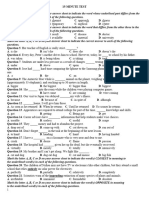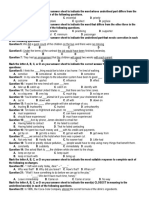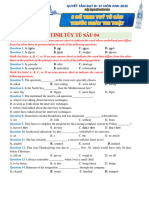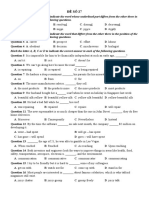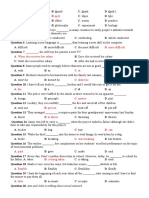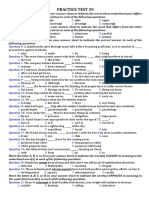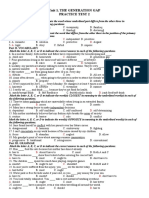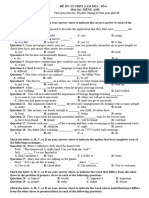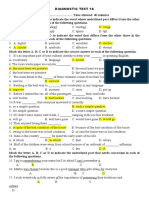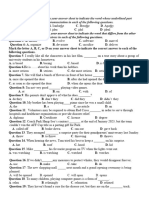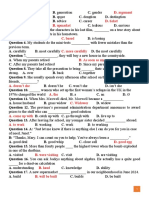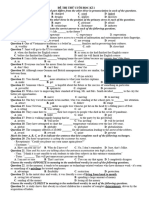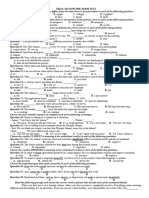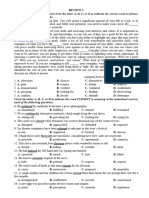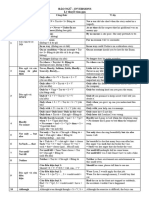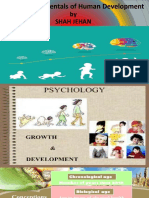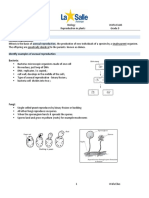0% found this document useful (0 votes)
103 views7 pagesPractice Test 4
The document contains a practice test with multiple choice questions about English pronunciation, grammar, vocabulary, and reading comprehension. It tests understanding of word stress, parts of speech, context clues, and making inferences from passages. The test contains 42 total questions covering a range of English skills.
Uploaded by
ngocha.avk33aCopyright
© © All Rights Reserved
We take content rights seriously. If you suspect this is your content, claim it here.
Available Formats
Download as PDF, TXT or read online on Scribd
0% found this document useful (0 votes)
103 views7 pagesPractice Test 4
The document contains a practice test with multiple choice questions about English pronunciation, grammar, vocabulary, and reading comprehension. It tests understanding of word stress, parts of speech, context clues, and making inferences from passages. The test contains 42 total questions covering a range of English skills.
Uploaded by
ngocha.avk33aCopyright
© © All Rights Reserved
We take content rights seriously. If you suspect this is your content, claim it here.
Available Formats
Download as PDF, TXT or read online on Scribd
/ 7

